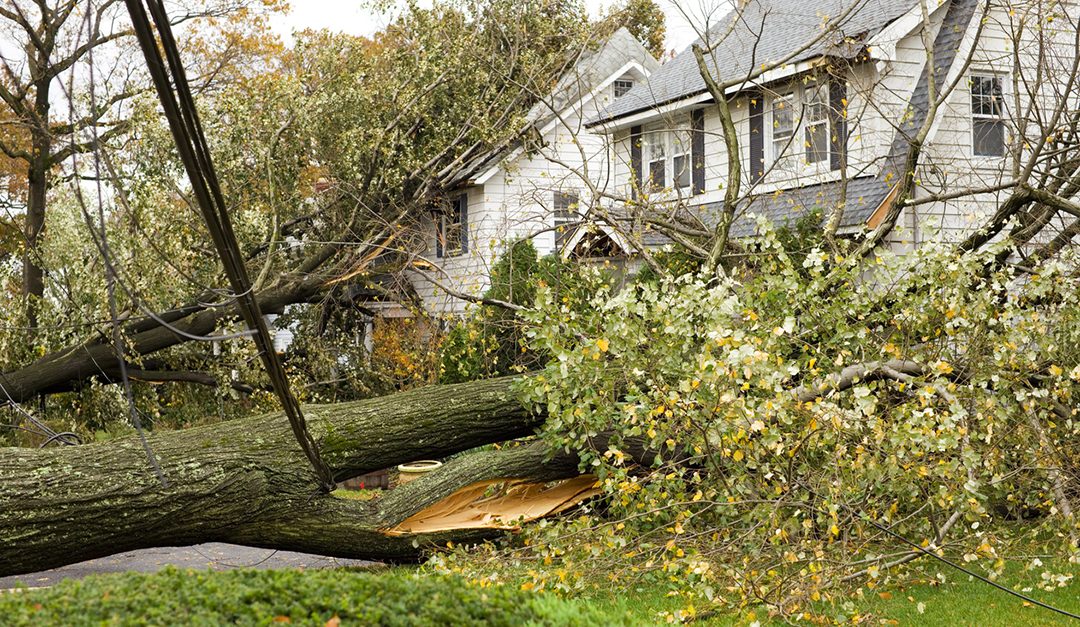It’s hurricane season, and for millions of Americans and others, that means getting ready to not only protect themselves and their families, but also the single biggest investment of their lives—their homes.
Catastrophic property losses and damages due to hurricanes are becoming more commonplace. According to the Insurance Information Institute, in 2017 alone, Hurricanes Maria, Irma and Harvey led to a combined $75,000,000 in estimated insured losses. Hurricane Dorian, which hit the Bahamas as a monstrous Category 5 over Labor Day Weekend, devastated the island, skirting Florida and flooding the Carolinas with rain. So far, 56 people are reported dead in the Bahamas (at press time), with the death toll expected to rise dramatically, and an estimated 70,000 people are homeless.
With hurricanes an ongoing concern, especially in real estate markets that are consistently hit hard by these natural disasters, it’s important to educate today’s buyers and sellers about how to best protect their investment and maneuver through a hurricane-threatened transaction.
Insurance
While standard home insurance typically covers a property against disasters such as hurricanes, protection against flooding is normally excluded. This can be a serious concern for affected homes that are not in flood zones and therefore not covered by flood insurance. Additionally, homeowners should consider another possible exclusion—sewer backup insurance. During a powerful storm, sewers can back up and cause significant damage. Agents should remind consumers to be knowledgeable about their insurance policy, as well as what it covers and what it does not, so that they can be prepared in case of an emergency.
For those who own a condo or co-op, the coverage can get confusing. When guiding consumers who are buying these properties, agents should make sure they are aware of what they are protected against by the master insurance policy for the building, and what they are responsible for on their own.
The biggest factor for homeowners with properties in truly vulnerable areas is having enough insurance should they encounter a catastrophic loss. Is there enough of a policy limit to cover the rebuild of the home should it be completely destroyed?
Transactions
Consumers who are in the middle of a transaction when a hurricane hits will be overwhelmed. Sellers will be worrying that their sale will be cancelled due to damages—a truly nerve-racking scenario for those who have already purchased elsewhere and cannot afford paying two mortgages at once. Secondly, buyers may get cold feet, worrying that their new investment will be damaged and they will be responsible for paying the repair costs. This is where real estate agents matter most, as they can guide the transaction to a close despite the storm, as well as mitigate any issues should the property incur damages. While transactions can often be delayed during a storm, especially for those paying with a mortgage rather than cash, agents should help all parties keep calm to ensure negotiations run smoothly and both seller and buyer walk away happy. Many times, it’s as simple as following the terms outlined in the “force majeure” portion of the real estate contract.
Personal Items
While the main focus during this time should be personal safety for family members and pets, agents should remind their clients to take preemptive steps ahead of hurricane season to minimize any losses. The biggest thing here is sensitive documents. Anything of importance such as Social Security cards, birth certificates, insurance documents, other forms of identification, etc., should be put in a waterproof safe or storage container or a safety deposit box. Copies should also be saved on a flash drive or hard drive as a backup. These should be easily accessible in case of a sudden evacuation. Forms related to the home for mortgage and insurance purposes will be essential should there be damage to the property. And in order to recover as much as possible in terms of costs, homeowners should have “before” pictures on hand to showcase what was lost and what the level of damage was.
While hurricanes can be devastating, the impact can be softened with the help of a real estate agent, as well as by ensuring homeowners are prepared when the time comes.
 Liz Dominguez is RISMedia’s associate content editor. Email her your real estate news ideas at ldominguez@rismedia.com.
Liz Dominguez is RISMedia’s associate content editor. Email her your real estate news ideas at ldominguez@rismedia.com.




